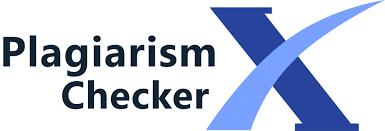KESIAPAN GURU DALAM MENERAPKAN KURIKULUM MERDEKA DI SDIT ARRABANI PEKANBARU (TANTANGAN DAN STRATEGI)
Keywords:
teacher readyness, implementation, merdeka curriculumAbstract
Teachers have a very crucial position in the education process. They also function as supporters for students. The main task of teachers is to educate, teach, guide, train, assess, and monitor students. In addition, teachers have an important responsibility in developing the curriculum, namely determining the direction and objectives of the lessons taught, as well as designing strategies to develop, evaluate, and compile a curriculum that is in accordance with the learning needs and characteristics of students. Because of this important role, teachers need to be ready to implement the independent curriculum. The purpose of this study was to find out. 1.) How is the readiness of teachers at SDIT Arrabani Pekanbaru in implementing the Independent Curriculum? 2.) What are the challenges and difficulties faced by teachers at SDIT Arrabani Pekanbaru in implementing the independent curriculum? This researcher applies a qualitative approach with a phenomenological research type. This study focused on the principal of SDIT Arrabani Pekanbaru, the deputy head of curriculum, and teachers for grades 1 to 4 at SDIT Arrabani Pekanbaru through data collection techniques that include interviews, observations, and documentation. The collected data is then analyzed through the following steps: 1) data collection, 2) data reduction, 3) data presentation, 4) drawing conclusions.
Downloads
References
Amirin, T. M. (2013). Manajemen pendidikan. Yogyakarta: UNY press.
Azizah, L., & Witri, S. (2021). Peningkatan mutu pendidikan melalui penerapan total quality management dalam program akreditasi sekolah. Dawuh Guru: Jurnal Pendidikan MI/SD, 1(1), 69–78.
Deprizon, D. (2021). PENGEMBANGAN PEMBELAJARAN HIFZHIL-QUR’AN DENGAN PENILAIAN AUTENTIK SEBAGAI PENGGERAK KARAKTERISTIK SISWA DI LEMBAGA PENDIDIKAN FORMAL. Kreatifitas Jurnal Ilmiah Pendidikan Islam, 10(1 SE-Articles). https://doi.org/10.46781/kreatifitas.v10i1.270
Heryahya, A., Herawati, E. S. B., Susandi, A. D., & Zulaiha, F. (2022). Analisis kesiapan guru sekolah dasar dalam implementasi Kurikulum Merdeka. Journal of Education and Instruction (JOEAI), 5(2), 548–562.
Ihsan, M. (2022). Kesiapan guru terhadap implementasi kurikulum merdeka belajar. Tugas Mata Kuliah Mahasiswa, 1(1), 37–46.
Indonesia, P. R. (2003). Undang-Undang Republik Indonesia Nomor 20 Tahun 2003. Pemerintah Republik Indoensia.
Kemdikbud, R. I. (2022). Kurikulum Merdeka Jadi Jawaban untuk Atasi Krisis Pembelajaran. Siaran Pers Kementerian Pendidikan, Kebudayaan, Riset, Dan Teknologi.
Meliza, M., Siraj, S., & Zahriyanti, Z. (2024). Implementasi manajemen Kurikulum Merdeka pada sekolah dasar di Kabupaten Bireuen. Jurnal Penelitian, Pendidikan Dan Pengajaran: JPPP, 5(2), 127–168.
Nasution, L., & Salman. (2024). Pengaruh Teknologi pada Dunia Pendidikan. Progressive of Cognitive and Ability, 3(1 SE-Articles), 34–42. https://doi.org/10.56855/jpr.v3i1.868
Rahman, S. (2022). Pentingnya motivasi belajar dalam meningkatkan hasil belajar. Prosiding Seminar Nasional Pendidikan Dasar.
Rukhani, S. (2020). Peran Guru Dalam Pengelolaan Kelas Untuk Meningkatkan Prestasi Belajar Siswa Kelas VII. Al-Athfal, 1(1), 21–41.
Sakban, S., Nursyam, U. R., Lestari, A., Sahlan, S., Widyanthi, A., Zarah, J. A., & Warinta, Y. (2023). Implementasi Kebijakan Kurikulum Pendidikkan SD Muhammadiyah 1 Pekanbaru. Journal of Education Research, 4(4 SE-Articles), 2341–2346. https://doi.org/10.37985/jer.v4i4.698
Sakban, S., Wismanto, W., & Salman, S. (2020). Communication Patterns in Islamic Religious Education Learning (Evaluative Study at SMA Negeri 1 Pasaman). FITRAH: Jurnal Kajian Ilmu-Ilmu Keislaman, 6(2), 257–272.
Sudjana, N. (2020). Penelitian dan penilaian pendidikan. Sinar Baru Algensindo.
Sugiyono, S. (2016). Metodologi penelitian pendidikan: Pendekatan kuantitatif. Alfabeta.
Downloads
Published
How to Cite
Issue
Section
License
Copyright (c) 2025 Diffa Pebriani, Radhiyatul Fithri, Sakban, Yesika Novita Rahmi

This work is licensed under a Creative Commons Attribution-ShareAlike 4.0 International License.












